Korean Studies Centre
Established in 2019, the Korean Studies Centre (KSC) operates within the School of Languages and Cultures at the University of Queensland (UQ). The Centre is dedicated to advancing scholarly research in Korean language, culture, history, and society. It also plays a pivotal role in developing sustainable partnerships with key stakeholders across the community, industry, and government sectors. Through these collaborations, the KSC contributes to a deeper, more nuanced understanding of Korea within the Australian context.
The KSC serves as a dynamic platform for interdisciplinary engagement, promoting Korean Studies both within academia and through public outreach. The Centre facilitates knowledge exchange through a wide array of academic and community-oriented activities, including an annual international conference and eight seminars each year. These events help cultivate dialogue on contemporary and historical issues related to Korea and its global diasporas.
In 2021, the KSC received a significant boost with a $1 million AUD grant from the Academy of Korean Studies, as part of its Core University Program for Korean Studies. This funding has enabled the Centre to expand its research agenda and invest in the development of future scholars, particularly Higher Degree by Research (HDR) students. The Centre's current research initiatives focus on:
- The content and cultural narratives of textbooks from the Korean peninsula and Korean diasporic communities, with emphasis on nationalism, identity, and cultural representation;
- Korean diasporic identity formation within the Australian socio-cultural landscape;
- The evolving image of Korea and the Korean peninsula in global and regional discourses;
- Historical depictions of Korea through archival documents, including letters and reports by Queensland and Australian missionaries from 1889 to 1945.
The Centre is co-directed by Honorary Associate Professor Jae-Hoon Jung and Associate Professor Isaac Lee, both affiliated with the School of Languages and Cultures. They emphasise the Centre’s commitment to fostering both academic excellence and community engagement. Through public lectures, cultural programming, and rigorous academic inquiry, the KSC continues to establish itself as a vital hub for Korean Studies in the Asia-Pacific region.
Centre Launch
The launch event for the Korean Studies Centre was held in February 2020 at Customs House and strengthened knowledge and understanding of Korean language and culture. Over 100 UQ staff, students and invited dignitaries and guests from the Korean community attended the event which gathered great interest and support for the Centre.
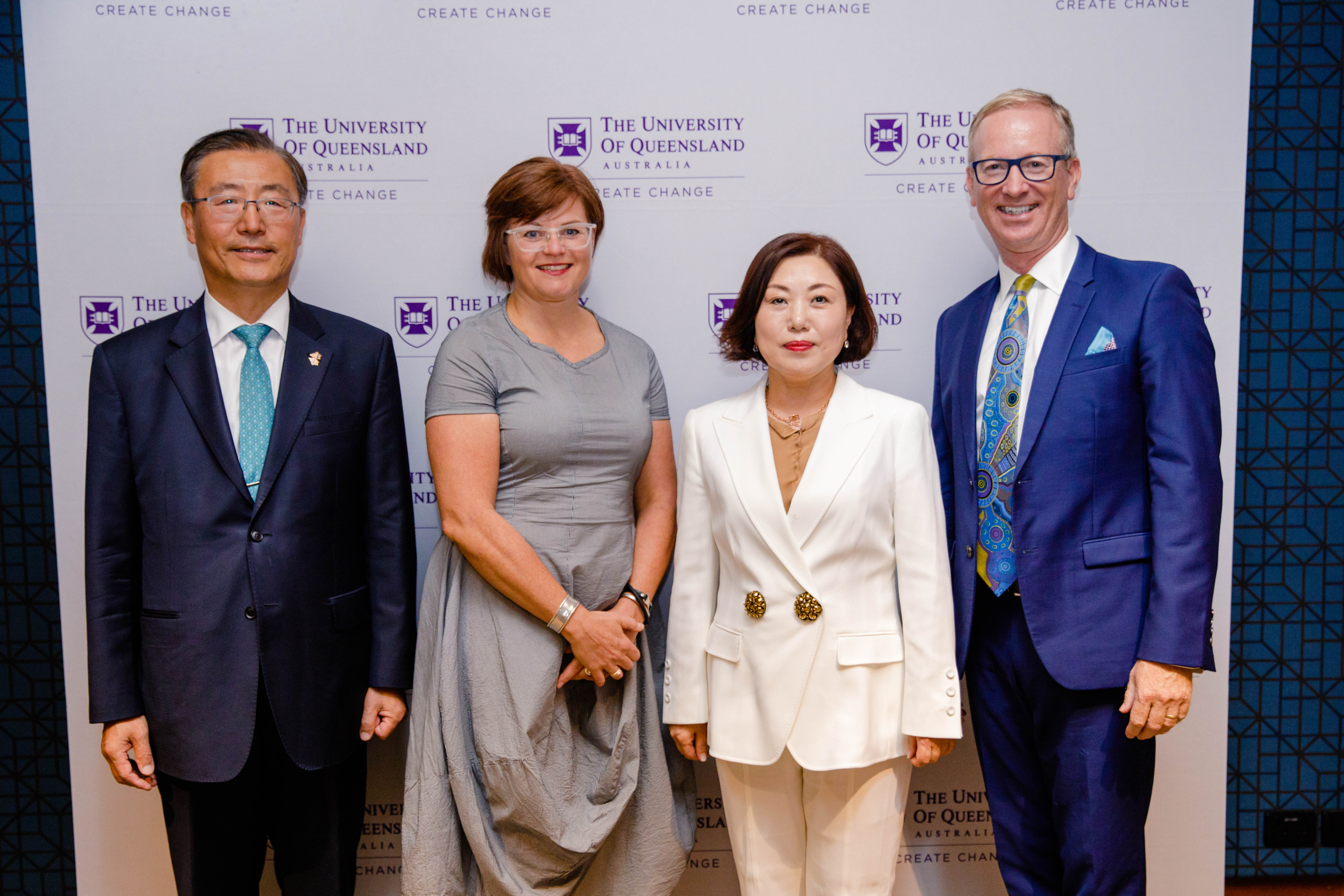 Professor Tim Dunne, Pro-Vice-Chancellor and Professor Heather Zwicker, HASS Executive Dean opened the event to an excited crowd.
Professor Tim Dunne, Pro-Vice-Chancellor and Professor Heather Zwicker, HASS Executive Dean opened the event to an excited crowd.
His Excellency Mr Baeksoon Lee, Ambassador of Korea - Republic of Korea then hosted the event held at Customs House, highlighting the importance of Australia’s relationship with their fourth largest trading partner.
Vice-Chairperson Susan Sookjin Lee, the National Unification Advisory Council Republic of Korea and CEO of Jae My Holdings Group, also attended the event and with Susan's generous contribution and support to the Centre the School has appointed a Postdoctoral Researcher for the Centre, Dr Seryun Lee.
Please visit our Facebook for more photos of the launch event.
Upcoming Events
Annyeong Korean! Korean trivia & Info Day
11 March 2026 4:00pm–6:00pm
Get ready for a fun and insightful experience on 11 March as we bring Korean Culture and Fun to campus! In this event, you will get:
- Free food & drinks
- Fun filled quiz trivia + prizes
- Information on Korean program & exchange opportunities
- UQ alumni talk on employability
- Exchange student experience
- HDR student talk
Don’t miss this exciting celebration of Korean innovation and culture — see you there!
- Date: Wed, 11 March
- Time: 4:00 PM - 6:00 PM AEST
- Location: Room 132, Building 14 (Sir Llew Edwards Building)
2026 Events
Webinars
6 February 2026
“The movement to redress the Japanese military comfort women: Grassroots’ concerns and responses today”
Speaker: Prof. Gil-Soo Han (Monash University, Australia)
12 February 2026
“Cultural analysis of Korean language textbooks used in India”
Speaker: Mr Naushad Alam (English and Foreign Languages University, India)
“Cultural analysis of Korean language textbooks used in Cambodia”
Speaker: Dr Klot Chandeka (Royal University of Phnom Penh, Cambodia)
Conferences
30 January 2026
The 1st International Colloquium on Jeju Studies | “Internationalisation of Jeju Studies and Research Collaboration between UQKSC and JNU RITC”
Co-hosted by:
- Korean Studies Centre, School of Languages and Cultures, University of Queensland, Australia
- Research Institute for the Tamla Culture, Jeju National University, South Korea
Previous Events
2025 Events
Webinars
26 February 2025
"Employment and career development opportunities in Korean workplaces"
Speaker: Prof. Heejin Lee (Yonsei University, South Korea)
10 July 2025
“Whose Arabic? Migration, heritage, and ideological tensions in al-Kitaab textbook series”
Speaker: Dr. Jung Min Seo (Hankuk University of Foreign Studies, South Korea)
2 September 2025
““K-Historicise this!”: Updating Korean male beauty aesthetics for the global consumption of Korean historical Sageuk TV Dramas”
Speaker: A Prof. Joanna Elfving-Hwang (Curtin University, Australia)
“The study of Korean language textbooks in Vietnam for primary and secondary schools”
Speaker: Prof. Mai Nguyen (Vietnam National University, Vietnam)
8 October 2025
K-Books in the K-Wave: Seoul Mothers & the Poetry of Rice
Speaker: Dr Jieun Joe Kiaer (YBM-KF Professor of Korean Linguistics, University of Oxford)
17 October 2025
2025 UQ Korean Day – Korean Trivia Quiz & Cultural activities
Hosted by: UQ Korean Studies Centre and UQ Korean International Studies Society (UQKISS)
Conferences
21–22 February 2025
International Conference: World Forum on Unification Humanities 2025
“Intellectual Values and Coexistence for a Peaceful Korean Community"
Co-hosted by:
- Korean Studies Centre, School of Languages and Cultures, University of Queensland, Australia
- Unification Humanities Research Group, Konkuk University, South Korea
- Korea Language Department, Ocean University of China, China
- Korea Research Center, Ritsumeikan University, Japan
Conference Program (PDF, 162.9 KB)
29 August 2025
UQ Korean Studies Centre Conference 2025
“Advancing Korean Studies: Sharing UQ’s Experience with Universities across Asia and Beyond”
Hosted by:
Korean Studies Centre, School of Languages and Cultures, University of Queensland, Australia
Conference Program (PDF, 295.4 KB)
2024 Events
Webinars
5 February 2024
"Why did the formation of the identity of Chinese Koreans need revolutionary narrative: the revolutionary narrative of Chinese Koreans and the reorganisation of their national identity after the establishment of diplomatic relations between China and south Korea"
Speaker: Prof. Haiying Li (Ocean University of China, China)
29 February 2024
"The content of Korean language textbooks and the process of their development in Vietnam"
Speaker: Prof.Mai Nguyen (Vietnam National University, Vietnam)
11 March 2024
"Development of Korean language learning platform and its use based on open chat AI"
Speaker: Mr. Jang Wook Lee (CEO, Jemix Home, South Korea)
9 April 2024
"Changes in the curriculum of Kim Jong Un’s era and the learning experiences of students"
Speaker: Dr. Hyo Sook Shin (University of North Korean Studies & Kookmin University, South Korea)
7 May 2024
"Character and identity of Koryoin in South Korea"
Speaker: Dr. Kyunghak Kim (Chonnam National University, South Korea)
19 June 2024
"Appraisal of North Korea’s claim on Two Korea"
Speaker: Dr. Kibum Han (Former First Deputy Director of the National Intelligence Service, South Korea)
12 July 2024
"Digital literacy, the planning and application of metaverse education"
Speaker: Dr. Chang-Hee Kwon (Hansei University, South Korea / President of the Korea Smart City Society, South Korea)
15 August 2024
"Ethnicity and Identity in New Zealand"
Speaker: A Prof. Changzoo Song (University of Auckland, New Zealand)
29 August 2024
"Korean traditional dance and its engagement with Multicultural societies in Queensland, Australia"
Speaker: Ms. Christina Hyeyoung Lee (President of Queensland Korean Traditional Dance Association, Ariehrang Inc., Australia)
2023 Events
Webinars
22 February 2023
"Korean language textbooks in Vietnam"
Speaker: Prof. Ba Thi Nga (Hanoi University, Vietnam)
17 May 2023
"English textbooks in North Korea"
Speaker: Prof. Jeong-ryeol Kim (Korean National University of Education, South Korea)
3 July 2023
"Becoming More Korean?: Understanding the Re-ethnicization of the Newer Generation Korean New Zealander Youth"
Speaker: Dr. Changzoo Song (University of Auckland, New Zealand)
3 July 2023
"UQ Korean Studies Webinar: The refugeeness of North Koreans in Canada"
Speaker: Prof. Ann Kim (York University, Canada)
31 August 2023
"Understanding of Korean classical archives and tips for using digital archives"
Speaker: Prof. Sungho Park (The Academy of Korean Studies, South Korea)
29 September 2023
"Understanding of Korean classical archives and tips for using digital archives"
Speaker: Dr. Wonpyo Hong (Former CEO of Samsung and Korean Telecom, South Korea)
19 December 2023
"The Status of Settlement of North Korean Refugees in Korean Society: Difficulties and Empowerment"
Speaker: Dr. Hyo Sook Shin (University of North Korean Studies & Kookmin University, South Korea)
Conferences
27 October 2023
The UQKSC International Conference on Korean Studies
"Cooperation between Korea and Australia in the Indo-Pacific Strategic Space"
Co-hosted by:
Korean Studies Centre, School of Languages and Cultures, University of Queensland, Australia
Centre for Australian Studies, Yonsei University, South Korea
Korea-Australia Foundation
Conference Program (PDF, 178.1 KB)
28 October 2023
The UQKSC International Conference on Korean Studies
"Culture, Education, Textbooks, Identity, Tourism and History"
Conference Program (PDF, 224.5 KB)
2022 Events
Webinars
17 March 2022
"Employability and Career development opportunities in Korea"
Speaker: Mr. William B. Choi (Founder and CEO of Posture360, South Korea)
28 April 2022
"Issues in the Development of the Textbooks"
Speaker: Prof. Soojin Lee (Editorial board member of Primary school national language textbooks, Daegu National University of Education, South Korea)
18 May 2022
"Exploring issues in Korean thoughts embedded in “Squid Games” and Korean ethnic identity"
Presentation 1: From Zero to Hero: “Squid Games” as an Analogy of Mencius’ Theory of Self-Cultivation
Speaker: Dr. Dan B. Jung (Seoul National University, South Korea)
Presentation 2: Identity and Heritage Language Learning among Mixed-heritage Korean New Zealanders
Speaker: Dr. Mi Yung Park (University of Auckland, New Zealand)
29 June 2022
"Understanding Goguryeo history and culture from the Korean diasporic perspective of Eurasia"
Speaker: Prof. Myung-Chul Youn (Dongguk University, South Korea)
29 August 2022
"Voices from Korean War Veterans’ Families"
Speaker: Dr. Janice Ban (Central Queensland University, Australia) & H.A. Prof. Jae-Hoon Jung (UQ Korean Studies Centre, Australia)
31 August 2022
"Current status of Korean studies education and textbooks in Thailand"
Speaker: Dr Soontaree Larprungrueng (Burapha University, Thailand)
21 September 2022
"Uses and implications of Korean textbooks overseas"
Speaker: Prof. Seung Hae Kang (Yonsei University, South Korea)
Conferences
1 – 3 December 2022
The First UQKSC Postgraduate Conference + The 2022 Korean Studies Conference
"Dynamics of Korea: Culture, Image and Identity in History, Society, Education and Textbooks of Korea"
Hosted by:
Korean Studies Centre, School of Languages and Cultures, University of Queensland, Australia
In Conjunction with:
Gyeongsang National University Museum & Institute for Social Science,
Gyeongsang National University, South Korea
Institute for Multicultural Integration, Dongguk University, South Korea
Conference Program (PDF, 4.7 MB)
2021 Events
Webinars
20 January 2021
"The spread of infectious diseases in ancient East Asia with focus on the Korean Peninsula and its implications for the Covid-19 pandemic in the two Korean states"
Speaker: Dr. Il Hong Ko (SNU Asia Center, South Korea)
3 February 2021
"Current issues and roles of Australia and Korea for peaceful co-existence and cooperation in Asia Pacific Regions"
Speaker: Prof. Gareth Evans (Australia National University, Australia) & Prof. Chung-in Moon (Sejong Research Center, South Korea)
21 April 2021
"Australian Missionaries’ Contributions to Social Development of Korea in 1889-2020: the Case of Gyeongsang Area and Its Implication to Human Rights of North Korea"
Speaker: Rev & Dr. Tae-Young Chi (Changshin University, South Korea)
9 June 2021
"Examining North Korean History Debates of the 1950-60s Using a Network Analysis"
Speaker: Dr. Jong-wook Hong (Seoul National University, South Korea)
21 July 2021
"Two Types of Korean Confucian Cultural Legacy and Its Implication to Contemporary Korean Culture and Society"
Speaker: Prof. Mark Peterson (Researcher-in-Chief, The Frog Outside the Well Research Center, USA)
25 August 2021
"South Korean Analyses of North Korean Balhae Research Trends Using Conceptual and Semantic Approaches"
Speaker: Dr. Il-Hong Ko (SNU Asia Center, South Korea)
13 September 2021
"The Co-Production of Knowledge and Wiki Writing: the "North Korea Humanities" Website"
Speaker: Prof. Moon-seok Jang (Kyung Hee University, South Korea)
Conferences
20 – 22 October 2021
1st International Webinar/Conference
“Korea-Australia Cooperation for Peace in the Korean Peninsula – Preservation and Transformation of the Korean Culture by Korean Diasporas”
Co-hosted by:
- Korean Studies Centre, School of Languages and Cultures, University of Queensland, Australia
- Center for Australian Studies, Yonsei University, South Korea
Gyeonggido Province, The Republic of Korea
With support from:
The Academy of Korean Studies, South Korea
Alumni Testimonials
Blair Williams
UQ Bachelors of Business/Arts (Korean) 2013
Copywriter, Marketing Strategist and TV Personnel
After graduating, Blair started working full time at a digital marketing agency in Seoul, South Korea.
"Working at the agency has been a really great opportunity for me. I have a natural interest in fashion, technology, and social media, so being able to work in an environment that combines all three is great," he said.
Blair also featured in a popular Korean talk show “JTBC Abnormal Summit” (비정상회담) as an Australian representative. Blair was one of many non-Korean male panellists from all around the world who appeared on the show that had a viewership over 12 million.
"I think in our globalizing world, having a second language under your belt is not only beneficial economically, but also culturally. It helps you to broaden your horizons, gives you a new perspective on your own culture and country, and is one of those really tangible forms of study that you can take out and use in the everyday. Without having studied Korean, I don't think I would have come to Seoul in the first place, which is something I can't really imagine. Having the language education that I did, it's really given me so many opportunities in areas I wouldn't have looked at. The TV show, for example, is a direct result of the Korean education I received both at UQ and here in Korea."
Blair is currently working as a copywriter for Cheil Australia.
Academic Staff - Senior Researchers
H.A. Prof Jae-Hoon Jung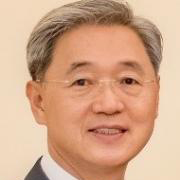
Co-director of Korean Studies Centre
School of Languages and Cultures
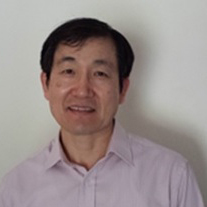 Associate Professor Isaac Lee
Associate Professor Isaac Lee
Co-director of Korean Studies Centre
School of Languages and Cultures
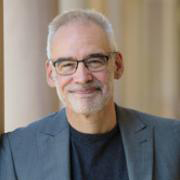 Professor Roland Bleiker
Professor Roland Bleiker
School of Political Science and International Studies
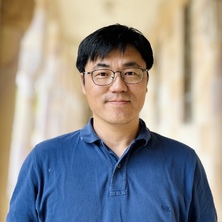 A Prof Dan Kim
A Prof Dan Kim
UQ Cyber Research Centre, School of Electrical Engineering and Computer Science
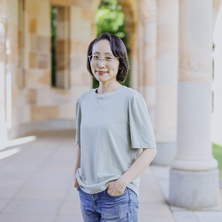 Dr Min Jung Jee
Dr Min Jung Jee
School of Languages and Cultures
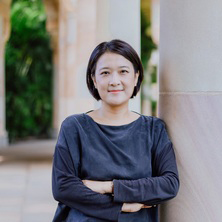 Dr Narah Lee
Dr Narah Lee
School of Languages and Cultures
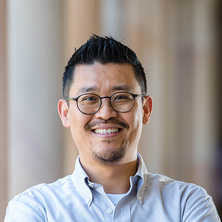 Dr Andy Lee
Dr Andy Lee
School of Business
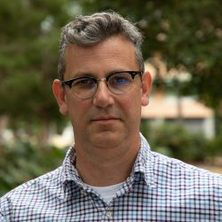 Dr Richard Murray
Dr Richard Murray
School of Communication and Arts
 Dr Janice Ban
Dr Janice Ban
School of Business and Law, CQ University
Academic Staff - Research Fellows
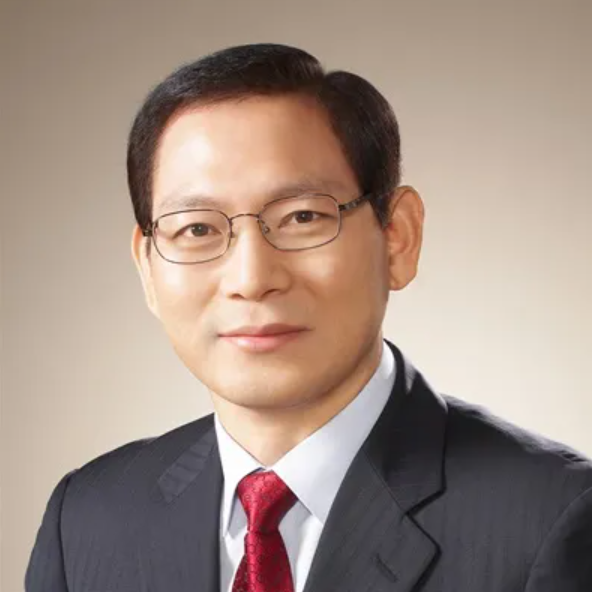
Dr Chung-soo Park, Advisory board member of Korea-Central Asia Cooperation Forum Under South Korea's Ministry of Foreign Affairs
Publications
- East Asian Territorial Disputes and International Cooperation (Co-author, 2014)
- 21st Century North Korea and Russia-mythology, anecdotes, and evolution (2012, elected to excellent works)
- Human Resources Development in G-20 Countries (Co-author, 2010)
- Russia and Korea - Finding the Memory of the Lost Hundred Years (2001)
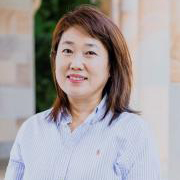
Dr Haisuk Kim, Academic & Research Assistant for Korean Studies
Publications
Journal Articles
- Comparative analysis of scientific communication skills between Korean and Australian university students (2024)
- Analysis of light-related visual images presented in elementary school science textbooks in Korea, the United States and Japan (2023)
- Japanese surveillance in colonial Korea: analysis of Japanese language textbooks for Korean students during the colonial era (2023)
- The construction of different educational ideologies for Korean students during the Japanese colonial era (2021)
- Japanese language textbooks used in Korea and Japan during the period of Japanese colonial rule – using comparative analysis between Kokugotokuhon and Shougakutokuhon (2017)
Conference proceedings
- Labor and national ideology in Japanese language textbooks during the Japanese colonial period (2025)
- Immigrant identity through stories and imagery in Australian and NZ children's books (2025)
- Voices from Australian Families of Unsung Heroes in the Korean War (2022)
- Japanese surveillance of Korean society (2021)
- Japanese language textbooks used in Korea and Japan during the period of Japanese colonial rule (2017)
Theses
- A critical discourse analysis of Japanese language textbooks written for Korean primary students during the colonial era (1910-1945) – PhD Thesis
- Japanese imperial influences on Korean primary language textbooks written in Japanese from 1910 to 1945 – Honours Thesis
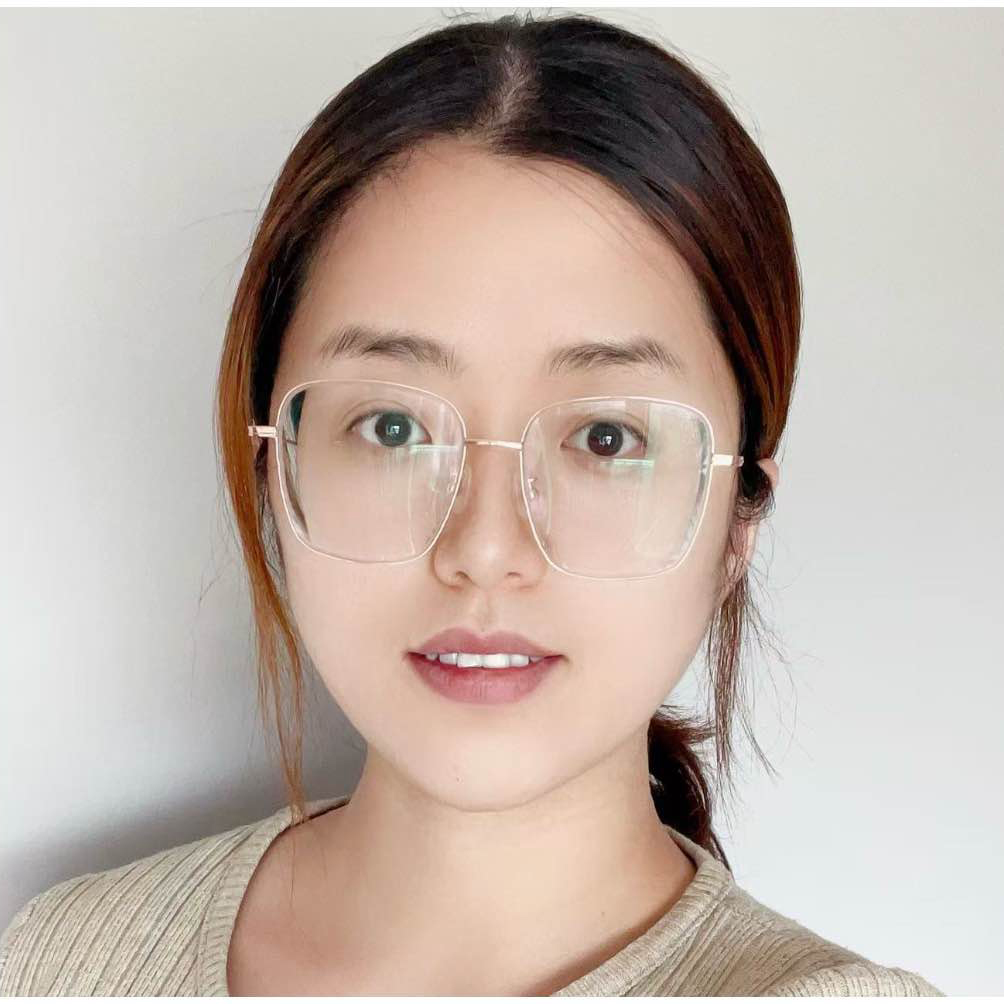
Dr Rihua Yin
Publications
Journal Articles
- Languages put restrictions on large sonority distances (2023)
- Frequent violations of the sonority sequencing principle in hundreds of languages: how often and by which sequences? (2023)
- Supplementary Materials: Frequent violations of the sonority sequencing principle in hundreds of languages: how often and by which sequences? (2022)
- A cognitive semantic approach to the meaning extensions of the skin-sense adjectives in Chinese and English [Chinese] (2016)
Theses
- A comparative study on polysemy “Hand” idioms in Chinese and English: A cognitive linguistic approach (2013) – Master’s thesis
Conference Proceedings
- Sonority-driven morpho-phonological alternations in hetero syllabic consonant clusters in Korean: A preliminary descriptive study (2023)
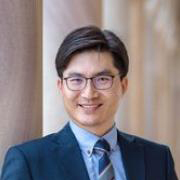
Dr Ki Young Choi, Teaching Associate & Research Assistant for Korean Studies
Publications
Journal Articles
- A critical analysis of Korean culture represented in the Korean language textbooks developed in Thailand (2024)
- A critical analysis of cultural representation in the Korean language textbooks published in Korea and used in Thailand (under review)
Theses
- A critical analysis of Korean textbooks used by Thai university students (2023) – PhD Dissertation
- A Study on Korean interrogatives and infinitives for teaching Korean as a foreign language (의문사와 부정사에 관한 한국어 교육학적 연구) (2012) – Master’s thesis
- A critical analysis of Korean textbooks used by Thai university students (2023) – PhD Dissertation
Book Publications
- The nation-founding myths of Korea (ตำ นำนเทพเจ้ำเกำหลี (เรื่องเล่ำกำรก ำเนิดประเทศ),
한국의 건국 신화 이야기) (2017) - Basic Korean for communication (ภำษำเกำหลีเพื่อกำรสื่อสำรเบือ้ งต้น),
의사소통을 위한 기초 한국어) (2017) - Basic Korean grammar (ไวยำกรณ์ภำษำเกำหลีหลัก) (2015)
Conference Proceedings
- A comparative analysis of Korean cultures represented in Korean textbooks in Thailand (2023)
- A study on teaching method of Chinese characters for university students who major Korean language in Thailand: Focusing on Chiang Rai Rajabhat University (2018)
- A study on Korean interrogatives and infinitives for teaching Korean as a foreign language (2017)
Dr Penny Bailey
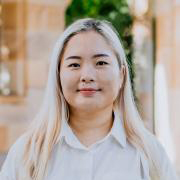
Ms Haegyeong Hong, Academic & Research Assistant for Korean Studies
Publications
Conference Proceedings
- Cultural ideologies and values in North Korean English textbooks (2023)
- Dominant ideologies and values within the theme of environmental issues of English textbooks in South Korea: A Critical Discourse Analysis (2022)
- Critical Discourse Analysis of Cultural Values and Ideologies in English Textbooks in South Korea (2021)
Thesis
- Critical Discourse Analysis of cultural values and ideologies in English textbooks in South Korea (2021) – Honours Thesis
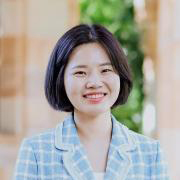
Ms Dabin Kang, Academic & Research Assistant for Korean Studies
Publications
Journal Articles
- Environmental literacy in ethnic Korean textbooks in China (2023)
- The comparative analysis of treatment of environmental issues in three primary school textbooks for ethnic Koreans residing in China: Korean language, morality and rule of law, character and society (2022)
Conference Proceedings
- Environmental Literacy From the Moral Textbooks Used in Ethnic Korean Primary Schools in China (2023)
- Environmental issues in the ethnic Korean textbooks in China (2022)
- The Comparative Analysis of Green Ideologies in the three Chosunjok textbooks Series: Korean Language, Morality and Rule of Law, Character and Society (2021)
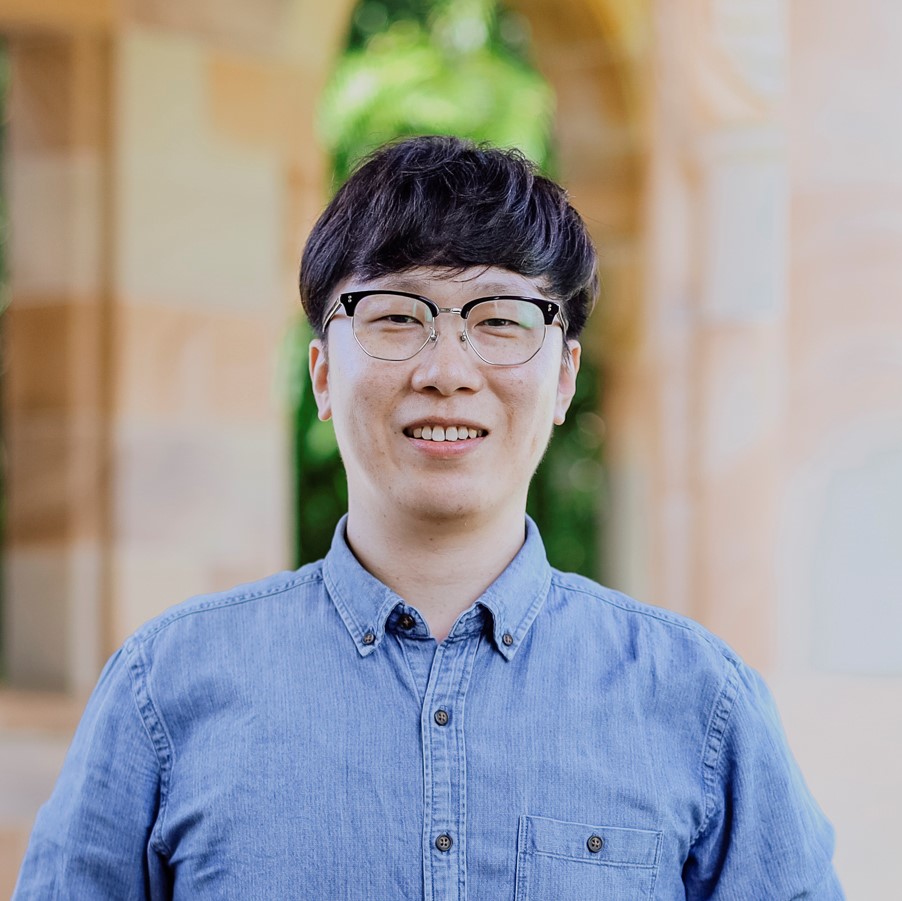
Mr Jung Soon Kim
Publications
Conference proceedings
- The language and identity influence of the Korean ethnic church on 1.5 and 2nd generation Koreans in Australia (2024)
Thesis
- The influence of ethnic Korean churches on heritage language and identity maintenance among 1.5 and 2nd generation Koreans in Brisbane (2025)
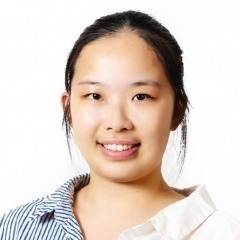
Ms Qunyi Wang, Research Assistant at the Korean Studies Centre
Publications
Journal Articles
- Chinese nationalism portrayed in textbooks designed for ethnic Korean students (2025)
- Portrayal of the national identity in Chinese language textbooks (2023)
Conference Proceedings
- Shaping minds: Cultural values, ideologies, and national identity in Chinese textbooks for ethnic Korean students (2025)
- Chinese nationalism in Chinese Korean language textbooks (2025)
- Cultural values and ideologies in Chinese language textbooks used by Ethnic Korean students (2023)
Contact us
Get in touch to learn more about our research.
H.A. Prof. Jae-Hoon Jung
Co-director of Korean Studies Centre
A Prof. Isaac Lee
Co-director of Korean Studies Centre

